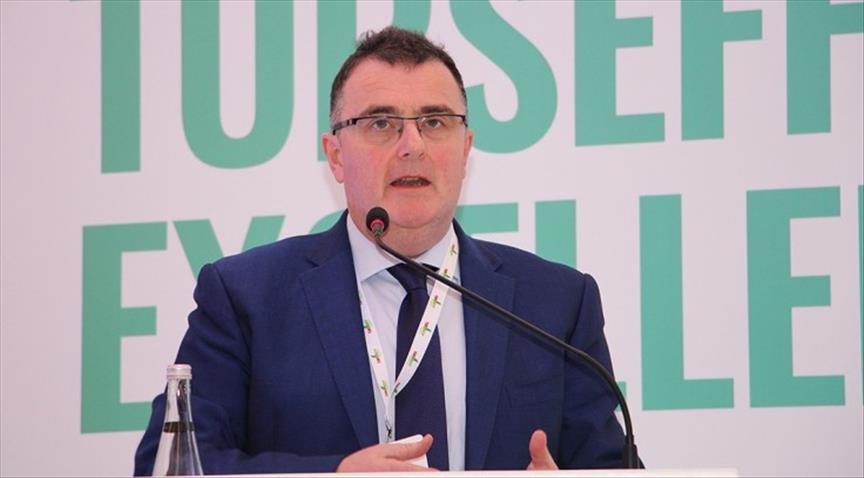Renewables are vital in the pursuit of balanced economic and energy security in Turkey, with an optimal mix in renewable energy likely to emerge soon, Terry McCallion, the director of the European Bank for Reconstruction and Development (EBRD), said.
“Therefore, we are confident the Turkish government will take all the necessary actions to continue to implement its renewable energy action plan,” he told Anadolu Agency.
The EBRD has helped develop Turkey’s first National Renewable Energy Action Plan to attract more investments in renewable projects.
McCallion said in terms of the composition of Turkey’s renewable energy, biomass, biogas along with geothermal energy in certain regions, would increase their share.
He also said recently there was a trend towards companies and investors looking at solar energy in Turkey, after following a phase where many wind farms had come on-stream.
- Renewables’ share to rise as costs plunge
McCallion emphasized as the costs of investments are coming down, renewables would start playing an important role in the energy mix of any country globally.
“The cost of technologies in renewables has declined precipitously,” McCallion said. “As investors see these technologies can deliver a stable, secure source of energy, and with cost curves coming down, their share in the energy mix will rise.”
McCallion said Turkey’s focus on scaling up the market penetration of renewable energy and improving energy efficiency would lead to serious reductions in CO2 emissions.
This would be in line with the COP21 agreement to combat climate change, he emphasized.
“Even the renewable energy action plan is very much part of what the contribution to sustainable and clean energy will be over time,” McCallion said.
He explained that each country that signed the agreement had made the commitment to a road map in terms of its contributions to sustainable energy.
“But what is important is to follow through on these actions,” McCallion remarked, arguing "that is in the heart of the COP21 process.”
McCallion expressed his confidence that the third phase of Turkey's Sustainable Energy Financing Facility (TurSEFF) for small renewable energy projects would be successful.
“We now know much more than we did in 2010 when we entered this market with this model for the first time,” McCallion noted.
“There have been lots of lessons learned about project identification, for example. Banks too are much more proficient and understand energy efficiency projects better,” he added.
The bank announced on Dec. 7 that it would provide an additional €400 million in financing under TurSEFF’s third phase, with the program evolving from its initial focus on SMEs, to targeting commercial sectors, leasing companies and municipal clients.
“It is ambitious to include municipal companies and municipal service companies in the third phase, but we believe it’s the right thing to do,” McCallion said.
The EBRD has also supported preparations for the National Energy Efficiency Action Plan which includes a wide range of sector-based resource efficiency measures, aimed at achieving Turkey’s 2023 energy efficiency targets.
Sibel Akbay
Anadolu Agency
sibel.akbay@aa.com.tr


